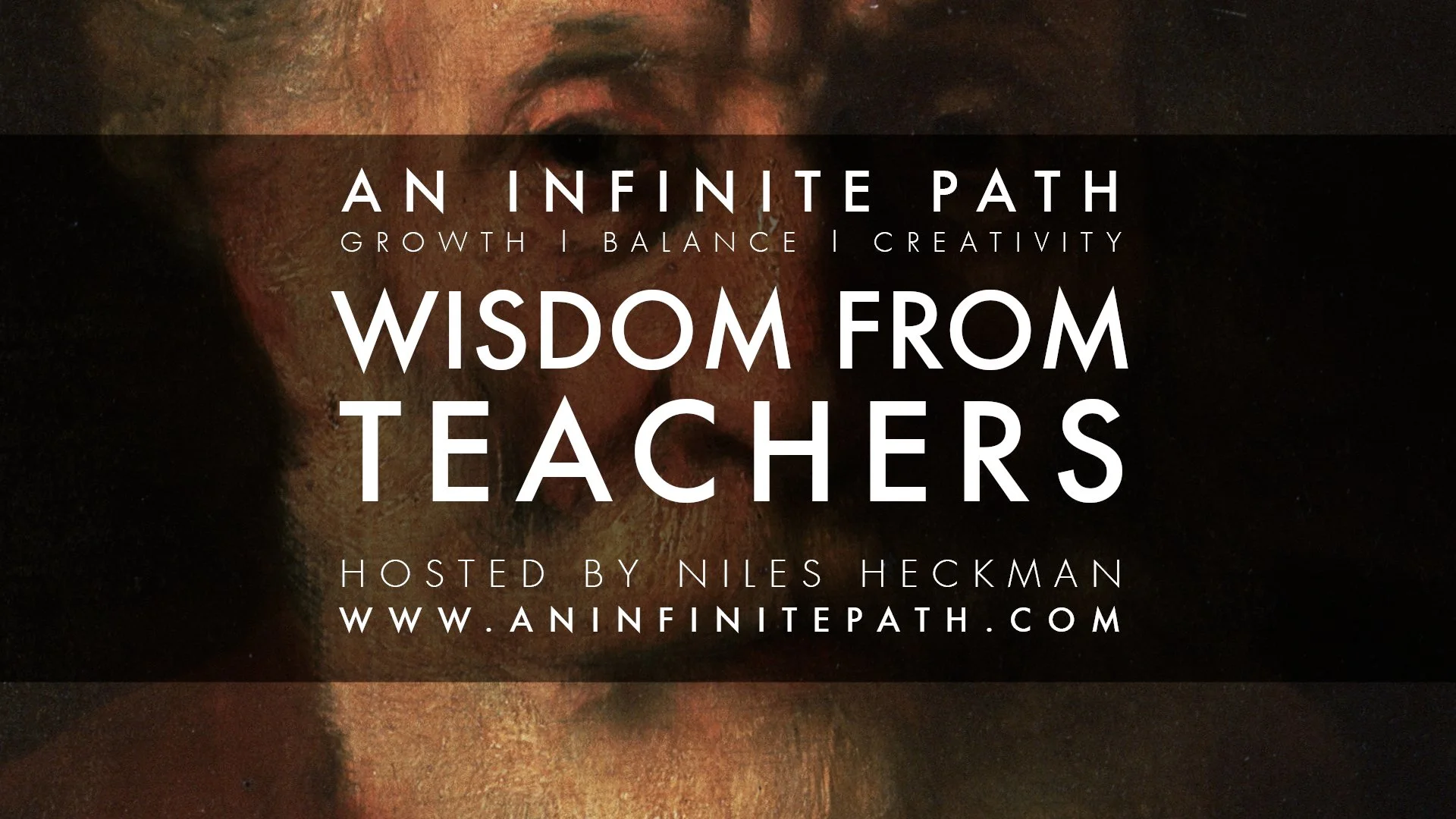We are going to focus this one on teacher and student relationships in the context of three primary areas - Practical life experience, apprenticeship, and personal (otherwise called occult) practice. Across all of these areas, gaining wisdom from teachers is a dynamic and profound process that has been a cornerstone of human education and personal growth since our ancestors' early nights and days.
Now we've all, especially during formal work training years, meaning our schooling years, likely had some stinker teachers - meaning ones that aren't very good. They could make an interesting subject boring. So we could think of this brief writing as really being "wisdom from good teachers". Because while the bad ones recede into the forgotten shadows, the good ones, of all adult ages, are memorable for a lifetime. Whether formal educators in schools and universities or informal mentors and guides, either can play a crucial role in imparting knowledge, experience, and life lessons to their students, who are usually but not always, younger in age.
The dynamic of gaining wisdom from teachers should involve key aspects such as transfer of knowledge, sharing of experiences, providing guidance, inspiring critical thinking and problem-solving, instilling ethics, as well as inspiring continuous learning which is not limited to formal education but instead extends throughout life, as individuals encounter mentors and guides in various aspects of their journey. Lifelong learning, facilitated by teachers and mentors, enables individuals to continually evolve as they face new challenges and experiences.
Practical life experience is a fundamental aspect of human development and lifelong learning not to mention a pervasive and essential aspect of human development and growth. It's often called "the school of hard knox". Encompassing a broad spectrum of situations where individuals learn from the wisdom, experiences, and guidance of others who can be anyone usually of older age - parents, siblings, aunts & uncles, grandparents, the mechanic, the mailman, the salon owner etc... This relationship is characterized by its informal learning, gradual progression, role modeling, skill transfer, feedback, passing on tradition, mutual respect, commitment and loyalty, adaptation to change, building of relationships (and potentially long term ones at that), and also learning from mistakes along with real world application, and exchange of knowledge contributing significantly to personal and professional development throughout one's life. This type of mentorship and guidance is not confined to formal educational settings but is prevalent in everyday life and virtually everyone will gain this type of teaching in their lives. Regardless of their formal schooling level. These are the types of teachings that will be inevitable. Even if you're Tarzan raised by wolves and other members of the jungle Queendom and Kingdom, there's no way you're not going to have these types of teachings with your experience in the Earth realm.
We've spoken elsewhere about the schooling system differing from the education system so see our essay entitled "Schooling is Not Education" on the subject. As formal, required, day school has not always been a thing. Public or private schooling, (“public” being “work training” and “private” usually being “better work training”) haven't always been mandatory. Prior to the days of the one room schoolhouse or homeschooling, we can look back to classical liberal art education which rose out of Ancient Greece, and then further back still to village schooling. Historically, whenever one decided to cease work training (and what's sometimes incorrectly referred to as higher education, meaning collegiate education) their base foundation schooling, oftentimes said to transition after the high school level, however that had been received - at home, or one room schoolhouse, would then be the young person, having an interest in a specific field or trade, or more likely a family connection to a specific field or trade, having them take on an apprenticeship. The teacher-student relationship is characterized by a strong focus on practical skill development and a commitment to passing on knowledge and traditions from one generation to the next. The teacher-student relationship in apprenticeships often extends well beyond the training period. Apprentices may continue to seek guidance from their mentors even after completing their formal training, fostering a long-lasting professional connection. This was always the way prior to the rather new development, coming about just within the last century, of college education being required for certain job positions in modernity. So teacher and student relationships within the context of apprenticeships is a time-honored, and you could say timeless, practical way of passing on skills, knowledge, and expertise from one generation to the next. This form of education has been crucial in preserving and advancing various professions and trades throughout history integral to various crafts and professions such as cottage industry craftsmanship, as apprenticeships existed back into the days of the renaissance artists, alchemists, tailors, trappers, and blacksmiths, (hence they are old school) and remain a valuable approach to learning and skill development in many trades to this day.
If someone is going through massive life changes, good or bad, and often bad before good, they begin searching for more out of life. Opening up to potential areas of interest they may not have previously considered. They may find some sort of new religion which they had not already been a part of, looking to clergy for teachings. Most of whom know little to nothing and may want to get in their kids pants. Or they may become more interested in conspiratorial, woo'y, new age’y material. And oftentimes looking to guru-like figures for teachings. These people are charlatans with bad fashion who just want to get in their pants and take their money. Not necessarily in that order. Further along, they may become interested in organized groups that may have mystery school style vibes, such as the Freemasons. But ultimately personal teachings must happen in a 1 on 1 dynamic, even sometimes anonymously where no one can get in each other’s pants. This isn't called their guru, or their master, or their priest, or provost, they are just referred to as their teacher. And The teacher-student relationship in the context of occult practice is a unique and complex dynamic, often characterized by its spiritual nature. Occult practices encompass a range of esoteric traditions, mystical teachings, and hidden knowledge, and the relationship between a teacher and student within this realm can take on several distinctive features: Being, like the previous two mentioned types of wisdom teachings - guidance.
In occult traditions, there is often a focus on secret or hidden knowledge that is passed down through generations. The teacher serves as the conduit for transmitting this knowledge to the student. This knowledge may include practices, rituals, developing more refined intuition, decoding of symbolism, and receiving esoteric information that is not readily accessible to the general public. All with heavy ethical considerations. Occult teachers play a crucial role in guiding and mentoring their students. They provide insights into more advanced areas of the spiritual path, offer instruction on occult practices, and help students navigate the complexities of other metaphysical realms which happen internally. This mentorship can extend beyond mere academic instruction to include personal and spiritual development, including and most importantly real imitation which must happen through a teacher who has already undergone a similar initiation. This is not possible without a good and very hard to find teacher. Who wisely guides students in the correct execution of these practices, emphasizing their significance and symbolism. Teachers provide students with tools and insights to help them explore their inner selves, increase self-discovery, uncover hidden truths, and evolve spiritually. This transformative journey can be deeply personal and may involve confronting one's own shadows and limitations. So occult teachings come with an element of secrecy, discretion, and trust. Both teachers and students are bound by oaths of confidentiality to protect the integrity of the teachings and the individuals involved. This secrecy is seen as a way to preserve the power and purity of the knowledge. Some occult traditions have hierarchical structures, with various degrees of initiation and mastery. Teachers often guide students through these levels, imparting progressively deeper knowledge and wisdom as students advance in their spiritual journey. In occult practices, the goal is not just to follow a teacher blindly but to empower the student to become an independent practitioner. Like any other form of mentorship, the effectiveness of this relationship relies on mutual respect and the alignment of the teacher's and student's goals and values. The teacher-student relationship within occult practice is a profound and spiritual connection that involves the transmission of rarely known, mostly hidden knowledge, and guidance for personal and spiritual development.
The relationship between teachers and students is a symbiotic one, as both parties can benefit from the exchange of wisdom and the pursuit of knowledge. As it’s been said that in order to really learn, one must teach, so the naive student must one day go onto becoming the wise teacher. We’ve once said “the quality of one's life is the quality of their questions' '. Which we would extend into saying “the quality of one's life is the quality of their teachers who we can ask those questions to. And be provided with good answers.”

